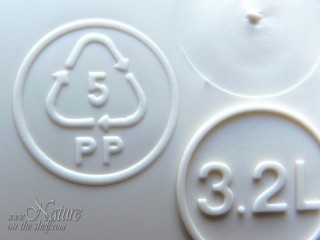Soap making equipment and materials to avoid
It is very important to know which kind of equipment and utensils should be avoided in soap making. Special care should be taken of materials which come in contact with lye solution, soap batter, fragrance oils and essential oils.
Lye is a strong alkali and it will react with some materials causing their melting or damaging. This often results with harmful or toxic compounds ending up in soap.
Lye and raw soap batter should not come in contact with utensils made of or coated with Teflon, aluminum, copper and their alloys, iron, tin, and plastic foams because strong alkalis react with these materials by destroying or melting them.
Glass containers (common glass and Pyrex) should be avoided in the preparation and storage of sodium hydroxide solutions. A strong lye solution slowly reacts with glass silicates forming soluble sodium silicates. These contaminate the lye solution and make it impure and unusable for soap making. Lye will etch the glass and weaken it, so in time glass can easily be broken when handling. Long-term storage of lye solution in a glass container will result in a honey-like solution of lye and sodium silicates, and the weakened glass container is likely to break. If such a container also has a glass lid, it will “freeze” and stick on the glass container.
On the other hand, many soap makers regularly use Pyrex containers for mixing oils and lye, and this is ok. This procedure usually takes only a few minutes up to half an hour, which is short enough to avoid visible glass damage. Therefore, the use of Pyrex for short-time soap mixing is acceptable, even it is not the best solution. If this practice is often repeated, the Pyrex container will lose its shine as a sign of lye damage.
Plastic utensils and containers are regularly used in soap making. Among many types of plastic, it is recommended to use hard, sturdy plastic like PP#5 (polypropylene). PP#5 is lye- resistant and it can withstand hot water. Many plastic kitchen containers are made of PP#5. The plastic type is usually stamped at the bottom of the container, so you can check it before use.

Other types of plastic (like PET, PC, nylon, PS#6 or ABS) should never be used when working with lye solution or raw soap batter.
For storing of premade cool lye solution, laundry detergent bottles made of HDPE#2 (High Density Polyethylene) can be used. HDPE#2 cannot withstand high temperatures, so lye solution should be cooled before pouring into the bottle.
For measuring and blending of fragrance and essential oils, use glass containers. Undiluted scent oils often contain compounds that can dissolve and melt the plastic. As a result, scent oils can leak out of damaged plastic cups. Even if this does not happen, such scent oils will be contaminated with molecules of plastic and thus, unusable for further use.
